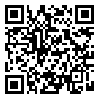

BibTeX | RIS | EndNote | Medlars | ProCite | Reference Manager | RefWorks
Send citation to:
URL: http://hcjournal.arums.ac.ir/article-1-238-en.html
Abstract
Background & objectives: Nowadays, mothers have ceased to breastfeed due to several factors and resort to bottle-feeding or other forms of complementary feeding of their children. This results in physical and emotional problems for children and socio-economic harms in communities. The purpose of this study was to determine the impacts of an educational program based on the theory of planned behavior on breastfeeding knowledge and behavior in Primiparous pregnant women were referred to the Hamadan health centers.
Methods: This quasi-experimental study was carried out with the participation
of 87 pregnant women. In the intervention group 44 patients and in the control group 43 patients were studied. Based on Hamadan’s four health regions, two of them were randomly selected from each region. Case and control groups were selected randomly. Interventions were designed for 4 sessions each lasting 45 to 55 minutes during 4 weeks. Breast feeding knowledge and behaviors were assessed by questionnaire and breastfeeding control list. The analysis was performed by SPSS v.16 using parametric and nonparametric statistical tests such as t-test, Mann-Whitney and Chi square.
Results: Results showed that there were significant differences in mean knowledge, perceived behavioral control, subjective norms and practice of breastfeeding among women in the intervention and control groups after intervention (p<0.05). There were no significant differences in mean scores of attitude, behavioral intention and behavior between the two groups.
Conclusion: The results showed an educational program based on the theory of planned behavior is able to increase knowledge and improve breast feeding behavior in pregnant women. Therefore, we recommend implementing training programs based on the theory of planned behavior to increase knowledge and improve breast feeding behavior in pregnant women.
Keywords: Planned Behavior, Breastfeeding, Knowledge, Education
| Rights and permissions | |
 |
This work is licensed under a Creative Commons Attribution-NonCommercial 4.0 International License. |


